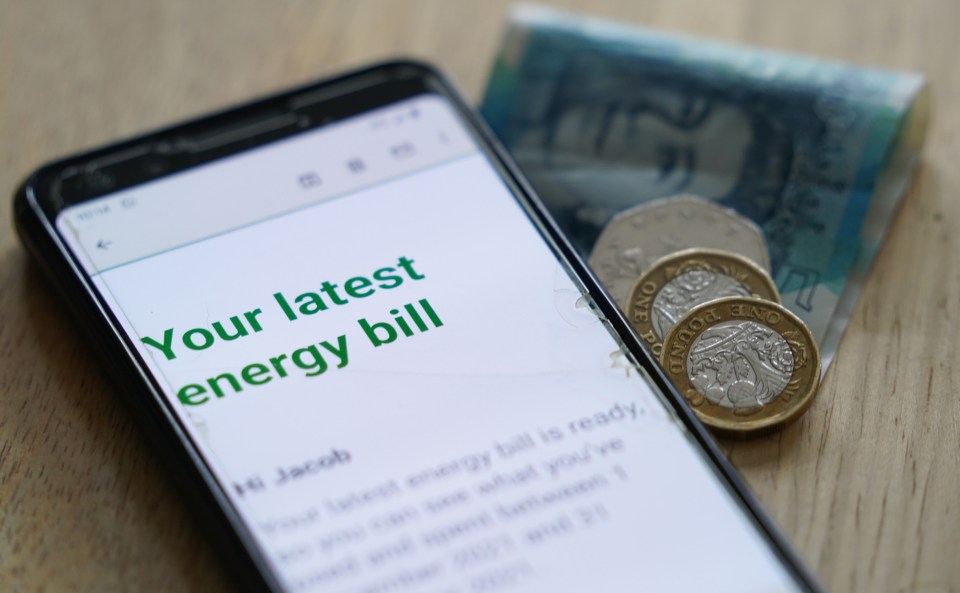USING your household appliances at night could save you £170 on your energy bills each year.
That’s if you’re on an Economy 7 tariff, which charges you less money for using energy at night.
You’re usually offered a cheaper rate for seven or 10 hours during the night and a more expensive one during the daytime.
These tariffs can be particularly suitable for you if you’re a night owl or you’re happy to run appliances such as your washing machine and dishwasher at night.
They also may suit you if your home doesn’t use gas or you have a storage heater.
Price comparison site Uswitch has now revealed exclusively to The Sun how much you could save by using your appliances at night.
Read more on energy bills
The exact hours considered daytime and nighttime can vary depending on your supplier.
But night is generally considered to be from 12am until 7am, while daytime is between 7am and 12am.
Running your washing machine four times a week would cost an average of 89p during the daytime on an Economy 7 tariff.
But if you ran it at night instead, it would cost roughly 43p – meaning it’s about half the cost.
Some washing machines will let you schedule your cycle so you could set it to finish just before you wake up in the morning.
Meanwhile using your tumble dryer three times a week would cost you roughly £2.83 during the day.
At night it would cost £1.36, saving you £1.47 per week.
Loading up your dishwasher seven times over the week would cost you £1.73 during the day.
If you ran it at night instead, you’d pay about 83p.
This would save you 90p per week.
And if you’re using your microwave for 30 minutes a day, it would cost you 87p.
If you happen to be a night worker or are otherwise up during the small hours, it would cost you 42p to use it at night instead.
That would save you 90p per week.
These sound like small savings but over the course over the year they could all add up to £170.56.
And there are other appliances you could use at night instead.
For example, if you have an electric car you could make savings by charging it overnight.
Or if you have a storage heater you could programme it to charge while you’re asleep.
What are time-of-use energy tariffs?
Economy 7 or 10 tariffs charge you different rates of electricity based on the time of day.
Economy 7 tariffs are more common than Economy 10, with cheaper rates for Economy 7 tariffs usually running from midnight to 7am.
The main advantage to them is that you can save money on your overall energy bill if you use more electricity during off-peak hours.
They are also mainly designed for households that generate all their power from electricity rather than electricity and gas.
To sign up to an Economy 7 tariff, you’ll need a smart meter or a dedicated Economy 7 meter installed in your home.
If you think you might be suited to an Economy 7 or 10 tariff, make sure you shop around for the best deals and rates.
You can do this through price comparison websites like Go Compare and Uswitch.
Ben Gallizzi, energy expert at Uswitch.com, said these tariffs are becoming “increasingly popular”.
But he warned: “It’s important to remember that you’ll usually be paying more for your electricity during the day with Economy 7 than you would on a standard price-capped tariff.
“If you’re on one of these tariffs, make sure everyone in your household knows what times are cheaper and when it’s more expensive, as getting it wrong can add up.
“The average Economy 7 day rate is 31.2p per kWh for electricity, which is more than double the average night rate of 15p.
“This day rate is also around a fifth (21%) more expensive than the 25.73p unit rate on a standard tariff.”
4 ways to keep your energy bills low
Laura Court-Jones, Small Business Editor at Bionic shared her tips.
1. Turn your heating down by one degree
You probably won’t even notice this tiny temperature difference, but what you will notice is a saving on your energy bills as a result. Just taking your thermostat down a notch is a quick way to start saving fast. This one small action only takes seconds to carry out and could potentially slash your heating bills by £171.70.
2. Switch appliances and lights off
It sounds simple, but fully turning off appliances and lights that are not in use can reduce your energy bills, especially in winter. Turning off lights and appliances when they are not in use, can save you up to £20 a year on your energy bills
3. Install a smart meter
Smart meters are a great way to keep control over your energy use, largely because they allow you to see where and when your gas and electricity is being used.
4. Consider switching energy supplier
No matter how happy you are with your current energy supplier, they may not be providing you with the best deals, especially if you’ve let a fixed-rate contract expire without arranging a new one. If you haven’t browsed any alternative tariffs lately, then you may not be aware that there are better options out there.













